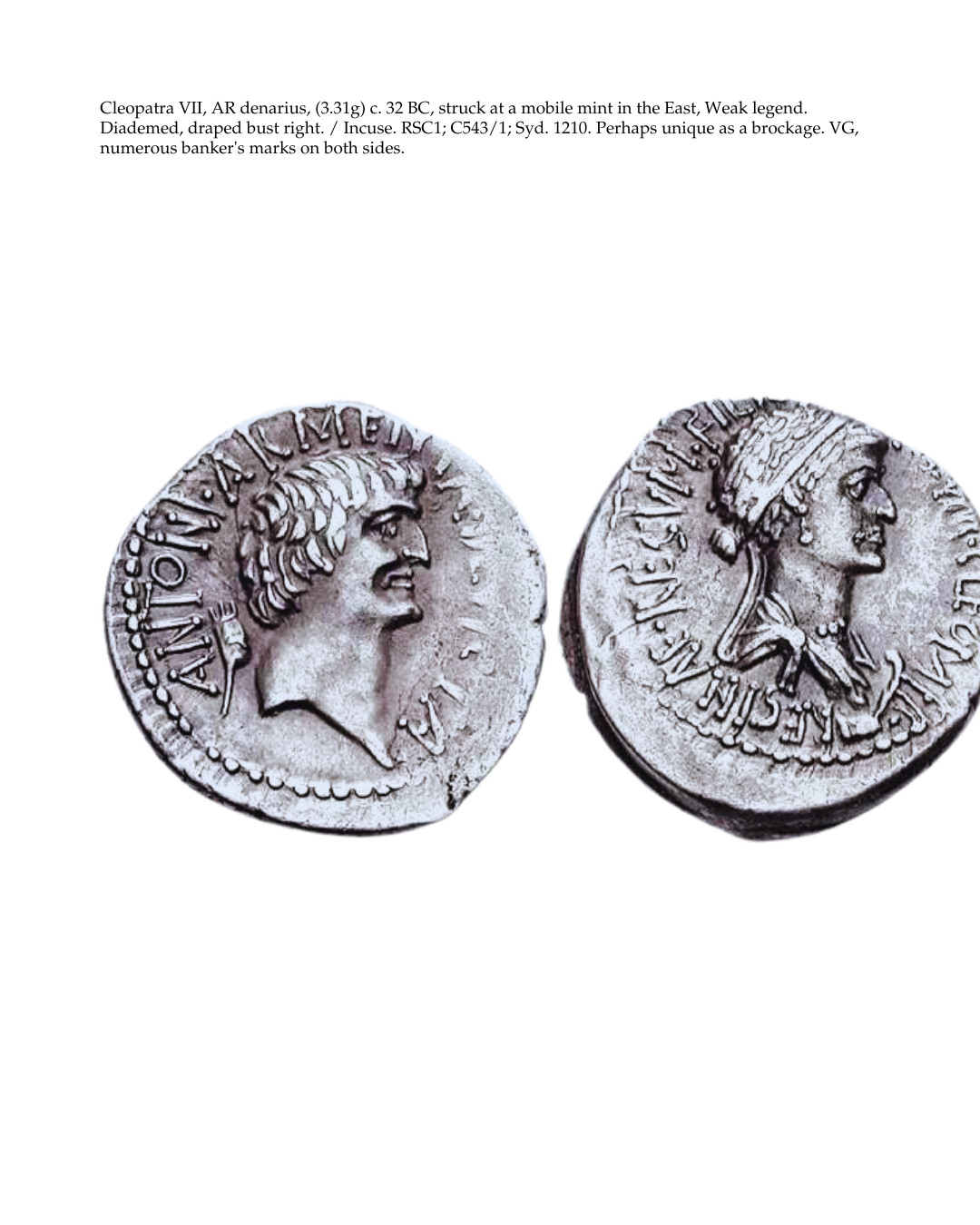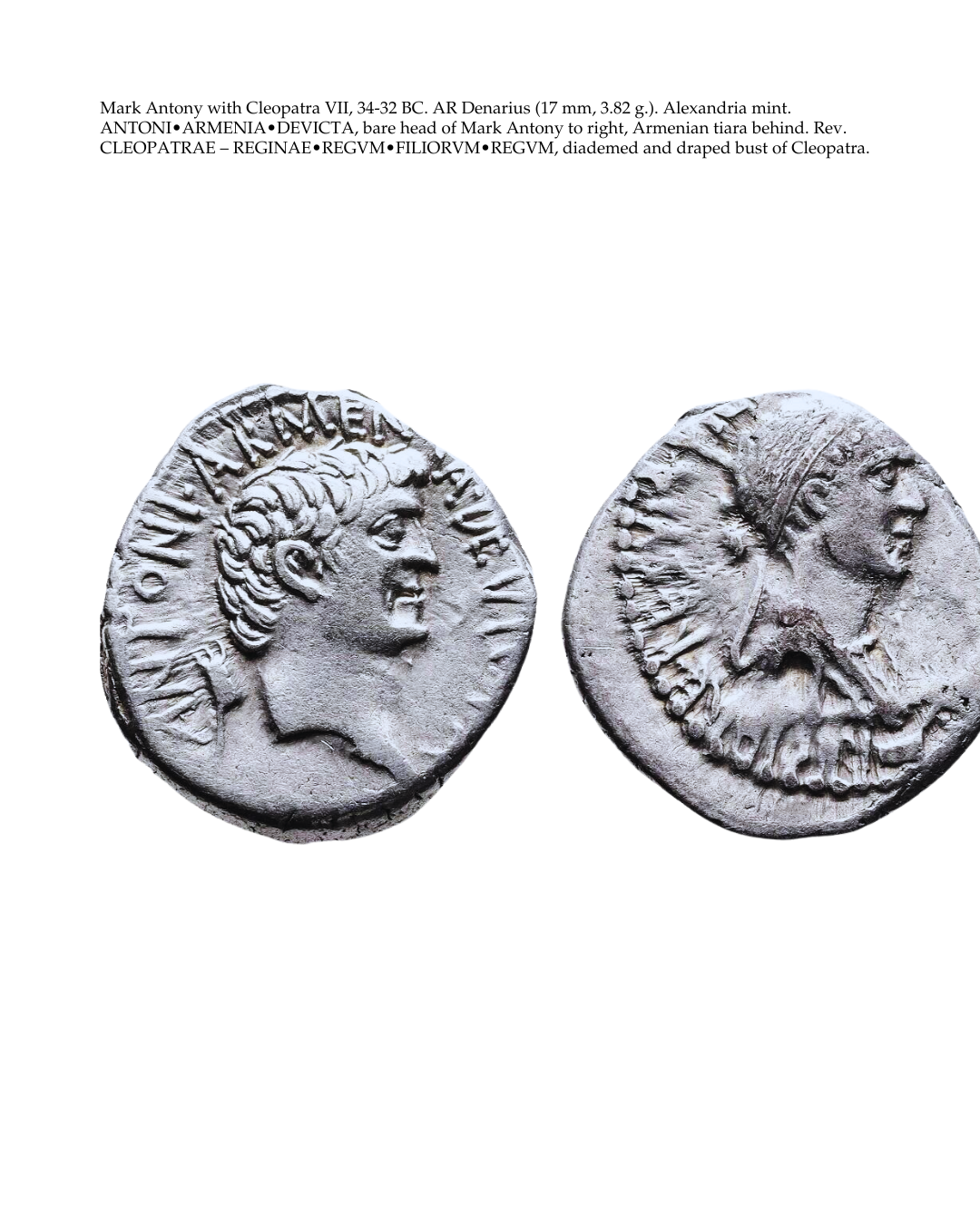The moment Roman soldiers received their pay in 34 BCE — silver coins still warm from the mint — they discovered their general had just made the most expensive relationship announcement in Mediterranean history.
One side read: “Antonius, Imperator for the third time” — standard military currency marking his victories. Flip it over, and there she was: “Cleopatra, Queen of Kings” — her profile sharing precious metal with Rome’s eastern commander.
This wasn't subtle diplomatic signalling. This was Mark Antony putting his Egyptian queen on Roman silver and daring anyone to question it.
Watch the scandal ripple through legion camps as soldiers examine their wages. Foreign monarchs couldn't even enter Rome legally — the city's ancient laws forbade crowned heads from crossing the sacred boundary. Yet here was Egypt's queen literally in their hands, her image traveling with Roman armies from Syria to the Euphrates.

Coins weren't decorative objects in the ancient world; they were state-sanctioned propaganda, official statements of power and legitimacy. Every transaction carried political messages, every merchant who handled them participated in the empire's ideological ecosystem.
By placing Cleopatra alongside himself, Antony wasn't just announcing their romance — he was declaring a new constitutional reality. This was the ancient equivalent of taking out a full-page announcement in Rome's most prestigious publication, complete with editorial declaring their children's rightful inheritance.
The timing was exquisite political theatre. The same year as the Donations of Alexandria, when they'd crowned their children and distributed kingdoms like wedding gifts. The coins told identical story in portable form: his authority married to her sovereignty, their shared claim to rule Mediterranean world.
Follow these silver pieces as they circulated through markets from Damascus to Memphis. Every shopkeeper who counted them, every tax collector who weighed them, every soldier who gambled them away was handling evidence of a partnership that challenged Rome's fundamental assumptions about power.
But picture the moment when examples reached Octavian's hands in Rome. His rival wasn't just consorting with foreign royalty — he was officially sharing Roman state symbols with her, treating Egypt's queen as co-equal partner rather than conquered ally.
The propaganda wrote itself: Antony had abandoned Roman values, Roman law, Roman dignity. He was paying Roman soldiers with coins that treated a foreign woman as legitimate authority. To senators raised on stories of expelling kings, this felt like constitutional treason wrapped in precious metal.
To Antony and Cleopatra, executing their palace strategy, it was simply the hard launch of a dynasty that would reshape the ancient world. They weren't hiding their partnership — they were advertising it, ensuring their union became literally currency throughout the eastern empire.
Some relationships are announced with engagement rings. Others mint their commitment into silver and distribute it to every corner of the known world.
The ultimate power couple move: making your love story legal tender.




